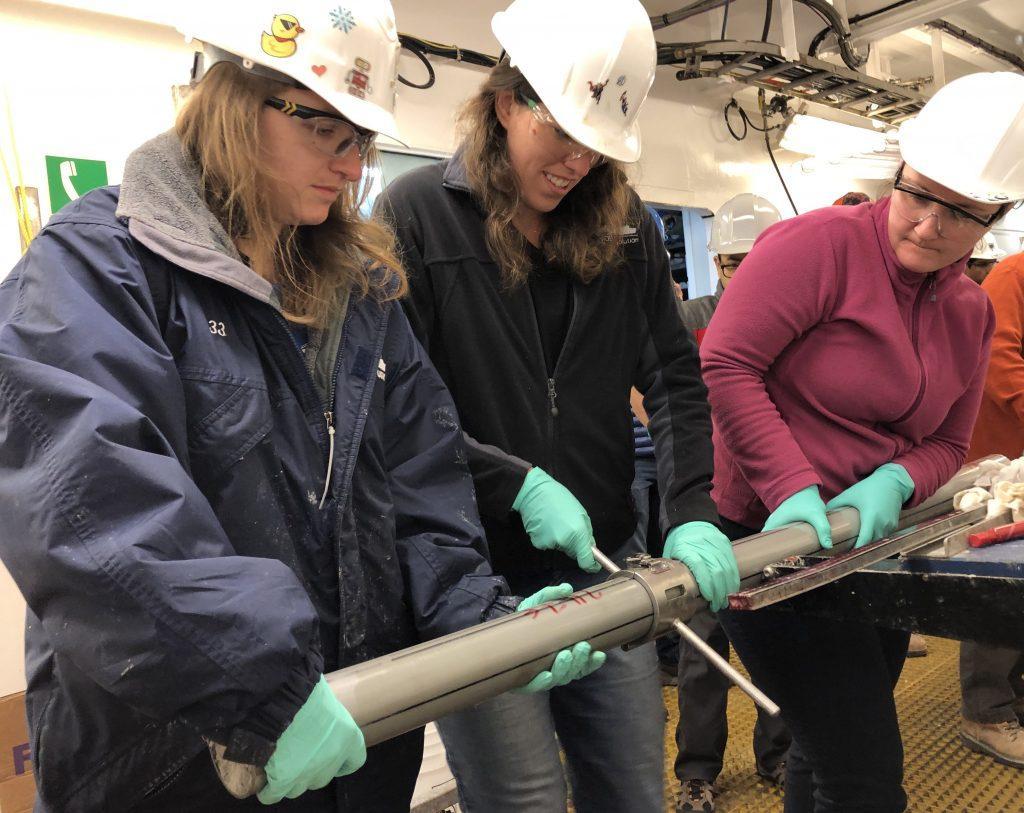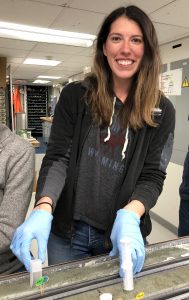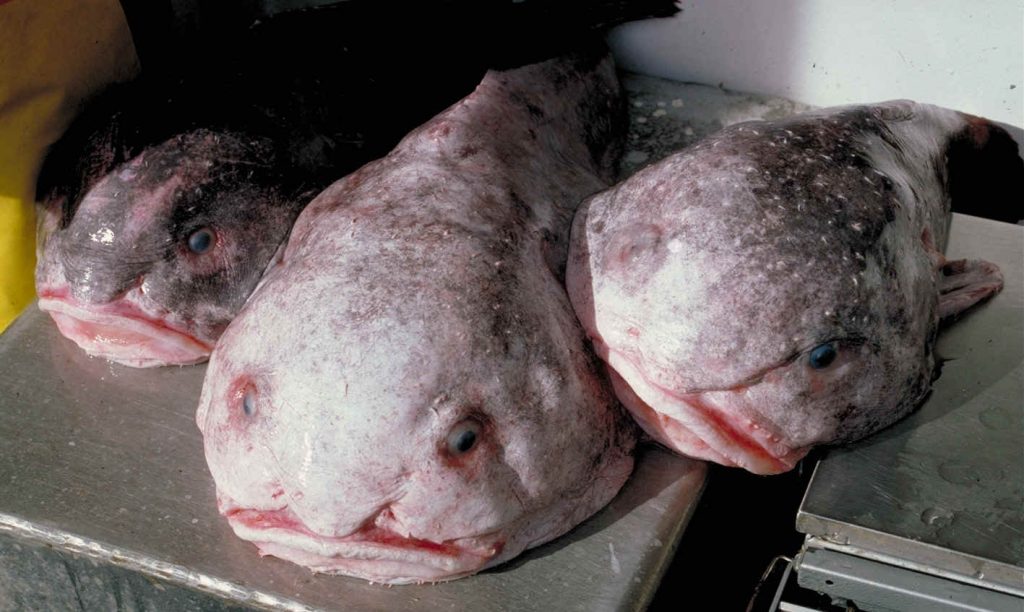
Career Spotlight: Curator Katy Smith

-Worked on the JR before: Yes
Curator Katy Smith
Please describe your job duties while on the JR. What will you be doing on a daily basis?
-
-
-
-
-
-
-
-
- My job as the shipboard curator is to manage how the cores and samples we collect are handled, documented, and preserved. As part of the Sample Allocation Committee with the Co-chiefs and the Expedition Project Manager, I facilitate creating and implementing sampling plans for where, when and how to take samples that will be analyzed on the JR and post-cruise to meet the research objectives of the expedition.
-
-
-
-
-
-
-
Describe one instrument or tool that is essential for you to do your job? Or a piece of equipment on the JR that is useful and why – what does it do?
-
-
-
-
-
-
-
-
- With countless choices and ever-changing favorites, today I think I will choose our custom made plastic sampling scoops and tubes. We have thousands of these on board and back on shore at the IODP repositories to ensure we are taking the right volume of sediment for a given analysis. Plus it makes sampling really soupy, soft core material much easier and cleaner.
-
-
-
-
-
-
-
Why is your work (or research) important? What question are you trying to answer or how does your work/research help assist/advance scientific knowledge?
- For an expedition to happen, it all starts with an idea to collect cores in an ideal location to address important scientific questions about Earth’s climate, tectonics, biosphere, evolution etc. This idea blossoms into a proposal, and spends years in the IODP system being rigorously analyzed for scientific merit, safety, feasibility and more. A massive amount of time and money over multiple years precedes each expedition. Therefore, when we finally retrieve cores and subsequently sample them to answer these research objectives, it is imperative to make sure that every core and sample is treated with the utmost care. That’s where I come in as a curator: to facilitate the best documentation and handling of cores and samples to help maximize the research being done on them on the JR and back on shore.

Why the ocean? What made you choose a career at sea or career that involves the ocean?
- I was lucky enough to sail on my first Antarctic expedition as an undergraduate. I found it incredibly exciting to personally collect the samples I would later analyze for my research, and to help others with their sampling and research. From then on, I was basically sold on a career involving marine geology, in which I’d get to sail to remote corners of the world and participate in science being done in different disciplines and regions. And it comes with the best job perks: traveling the world and seeing incredible and rare sights, from the Aurora Australis, to giant icebergs, to entire rainbows off of the coast of New Zealand…it’s awesome to keep adding to the list just from working out at sea!
What are you most excited about for this expedition and/or being on the JR?
- I am really excited to core close to Point Nemo, the furthest place from land on Earth. I think there is something so exciting about doing science in such remote locations.
What are three things you think are needed for a successful expedition at sea? And Why!
- Good attitudes. Sounds cliché! But 2 months is a long time to be away from the comforts of land, family and friends while working hard 12 hours a day/7 days a week. Smiles, jokes and positivity go a long way.
- Good teamwork. It truly takes a village to have a successful expedition. I think there are about 140 people on board for Exp. 383, each one working hard to run a part of this huge operation.
- Good chocolate. For yourself and to share with others, especially during the last two weeks. If anyone has Tim Tams, please feel free to come by my office anytime!
If you could answer one question about our Earth – what would it be and why?
- HOW did we end up with something as hideous as the blobfish?! (Voted the Earth’s most hideous species in online poll. (Source: Smithsonian.com))

When did you know you wanted to pursue a career in science or an ocean science career?
- The first geology class I took in undergrad was Ocean Science. From there, I found out that my college had an Antarctic program, and I was dead set on getting on one of those expeditions. Fast forward to today, which is about my 250th day at sea on a scientific research vessel!
What message do you have for anyone considering a career at sea or a career involving the ocean sciences?
- Get on a ship ASAP!
Do you get sea sick? If yes or sometimes, please also select the other tab and describe how you cope with it.
- Sometimes: I take half a Meclizine tablet a few hours before we leave port, and continue taking it for as long as I think I need it. The JR is pretty stable though!
The need for space comes in many forms. Which type of space, in general, is the most important to you?
- ___Personal Space
- ___Creative Space
- ___Outdoor Space
- ___Emotional Space
- ___Physical Space
- ___Spiritual or Meditative
- ___Outer Space
- _X_Community Space
- ___Quite Space
- ___Productive/Work Space
- ___Digital/Virtual Space
- ___Public Space
- ___Inner Space
- ___Other:
Why that type of space? What makes it important to you and will it be available while on the JR?
- I have a very small personal bubble, so it always makes me feel better to be around other people! For me out here, it is a great combination of sailing with familiar faces and meeting new people from all over the world.